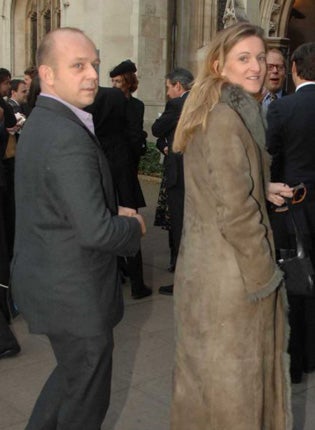The woman at the heart of the Tories – and Google

Your support helps us to tell the story
From reproductive rights to climate change to Big Tech, The Independent is on the ground when the story is developing. Whether it's investigating the financials of Elon Musk's pro-Trump PAC or producing our latest documentary, 'The A Word', which shines a light on the American women fighting for reproductive rights, we know how important it is to parse out the facts from the messaging.
At such a critical moment in US history, we need reporters on the ground. Your donation allows us to keep sending journalists to speak to both sides of the story.
The Independent is trusted by Americans across the entire political spectrum. And unlike many other quality news outlets, we choose not to lock Americans out of our reporting and analysis with paywalls. We believe quality journalism should be available to everyone, paid for by those who can afford it.
Your support makes all the difference.Plans by the Conservative Party to offer private companies the chance to handle medical records were bound to run into opposition from those fearing that patients' most private details could be put at risk. But the party's links to the internet giant, Google, which is set to benefit from the plans, has added to the controversy over the project.
Accusations that the firm has an influential advocate inside Conservative Party headquarters (CCHQ) have emerged because one of David Cameron's most trusted advisers, his chief strategist, Steve Hilton, is married to Rachel Whetstone, Google's vice president of public policy and communications.
The importance of Mr Hilton to Mr Cameron's operation can not be over-emphasised. While communications chief, Andy Coulson, deals with the day-to-day traumas of political life, it is Mr Hilton who Mr Cameron consults over longer-term policy plans. And Mr Hilton is always close to the Tory leader, occupying an office next to that of Mr Cameron inside CCHQ.
The Tories were so keen to hold on to Mr Hilton that he was allowed to work from the US, after his wife began working for Google in 2005. He has only recently returned, just in time to help deal with the controversy over proposals to hand medical records to firms such as Google and Microsoft.
With Mr Cameron declaring his intention to create a "post-bureaucratic age" in British politics, with the internet central to his plans, it is not hard to see why some believe Google has already influenced Tory policy. In a speech last month, Mr Cameron said he aimed to build "a new era of Google government".
However, the headache created for the party over Mr Coulson's involvement in the News of the World phone-tapping row recently has made the Tory high command very sensitive to the damage such associations can inflict. Do not expect Mr Cameron to mention Google unprompted again soon.
Join our commenting forum
Join thought-provoking conversations, follow other Independent readers and see their replies
Comments